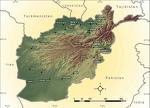The “Afghanistan Factor” and The Debt Ceiling Crisis

-[I]f the current political trends persist (harsh political campaigning that ignores international realities), they could lead to unfavorable consequences not just in the United States, but worldwide.
The U.S. political system based on checks and balances forced President Barack Obama to discuss the Afghan issue with Republicans in order to make a deal over the state debt. This is one more piece of evidence how interdependent the domestic and foreign policies in the United States are. And that the officially claimed goals of Operation Enduring Freedom are inconsistent with the reality.
It is no exaggeration to say that the international community’s attention was riveted on the protracted negotiations between Obama and his Republican opponents on the new federal debt ceiling.
According to a U.S. political analyst who is working under contract with the White House, if it was about raising the debt ceiling alone, the issue could have been resolved within a few hours. He said Washington was locked in a heated bargaining process behind closed doors, in which the Republicans were trying to win control over Obama’s domestic and foreign policies, cutting his opportunities for scoring points with his voters.
The cornerstone of this bargaining is cutting military spending and reducing U.S. military presence abroad (as a way to cut federal spending that the president’s representatives proposed to their opponents behind the scenes). According to the source, the real stumbling block was the planned drawdown of U.S. forces in Afghanistan.
Last week, experts gathered in Moscow to discuss the U.S. pullout from Afghanistan. The conference was organized by the Center for Support and Development of Public Initiative “Creative Diplomacy,” an independent public organization, and the Foundation of Historical Outlook, the Russian conservative think tank focused on the studies of international relations. Some speakers noted a few specific features of the current stage of the conflict. First, NATO’s mission can be described as a complete failure now. Second, a rapid withdrawal of U.S. forces could precipitate an international catastrophe. And third, Pakistan is now the key factor in resolving the Afghan problem. Prominent Russian Oriental expert Georgy Mirsky said the war in Afghanistan would not be successful unless there was a victory in Pakistan.
The U.S. political analyst I mentioned earlier said Obama’s entourage shares this view. His representatives have tried to convince their Republican opponents at a private meeting (officially devoted to raising the federal debt ceiling but in fact focusing on other issues, including Afghanistan) that they should concentrate on Pakistan and that the solution does not depend on U.S. military presence (full-scale or otherwise) in Afghanistan.
On the other hand, the analyst indicated that the Republican opposition is not that worried about Afghanistan. They are mainly interested in Obama’s failure to make good on his pre-election vows such as the pullout from Afghanistan losing him votes. Therefore, they would prefer to leave things as they are in Afghanistan for at least the next 18 months, or better yet, to add some fuel to the conflict. This kind of approach has generated some truly incredible projects, such as the Blackwill plan that could be characterized as a sort of political grave for Obama.
Unfortunately, an analysis of the domestic situation in the United States shows that in confronting Obama, the Republicans have relied on a strategy that maximizes their potential political gain, aiming to squeeze as much as they can from the president in exchange for agreeing to increase the federal debt ceiling. It is hard to predict what deal the sides have actually made at this stage. It is clear that it is temporary and more fighting is still ahead. However, if the current political trends persist (harsh political campaigning that ignores international realities), they could lead to unfavorable consequences not just in the United States, but worldwide.
Alexei Pilko is Assistant Professor at Moscow State University’s Faculty of World Politics

